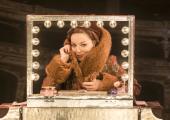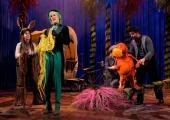Funny Girl, Savoy Theatre

Sheridan Smith is the greatest star in a winning West End transfer
Vaudeville is having quite the West End moment, with Funny Girl inheriting the Savoy from Gypsy and Mrs Henderson Presents over at the Noël Coward. Gypsy is the pick of the bunch dramatically, delivering theatre history with real psychological heft, but Sheridan Smith’s luminous Fanny Brice gives Funny Girl a fighting chance. She’s such a natural vaudevillian that you begin to wonder if she’s somehow been transported from another age.









